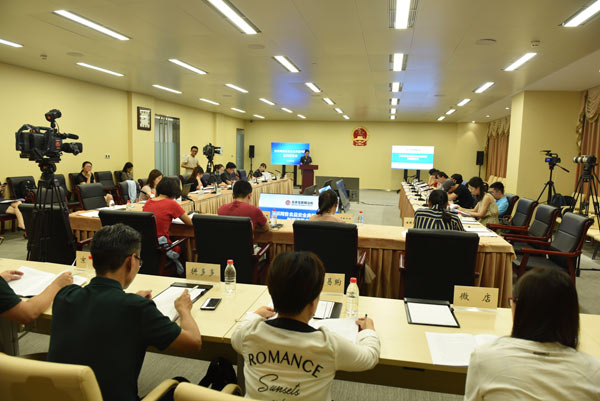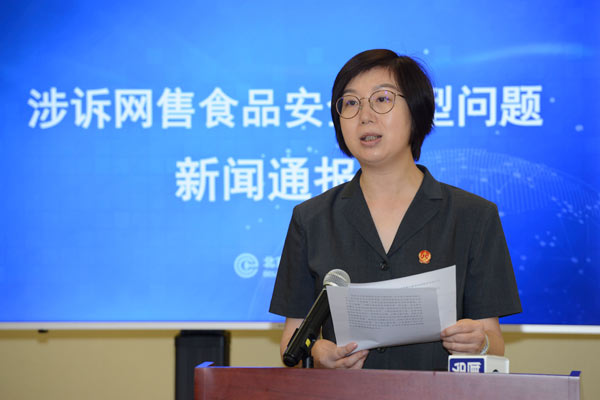Beijing Internet Court pays close attention to online food sale cases
The Beijing Internet Court held a press briefing on June 24, circulating information on typical issues, causes and solutions of online food sale cases, a move to bolster food security in terms of cyberspace governance.

Beijing Internet Court holds a press conference on typical issues, causes and solutions of online food sale cases on June 24.
In recent years, the rapid growth in science and technology and the change of people's consuming methods have boosted online sales, with online food shopping emerging as a popular choice for customers.
However, online food security issues are also on the rise, which calls for more efforts and attention to the judicial dimension.
Since its establishment on September 9, 2018, the Beijing Internet Court has accepted many relevant cases.
As of June 21, 2019, the court had heard 3,032 cases on online shopping contract disputes, 12.37 percent of the total of all cases heard for any matter. There were 104 online shopping product infringement cases, 0.42 percent of that total.
Of the two categories of cases mentioned, 73 percent were related to online food sales, raising issues of food labels, ingredients, addictives, import permits, inspections and quarantine as well as production qualifications.
At the press briefing, the court publicized note-worthy aspects of the cases.

Jiang Ying, vice-president of Beijing Internet Court, addresses the press briefing.
Liu Gengchao, judge of the second Comprehensive Division, introduced typical issues over online food sale lawsuits, including food businesses that do not meet security standards, additions of illegal non-food ingredients and false advertising.
Lu Ning, judge assistant of the division, analyzed causes of problems in food producers and operators, e-commerce platforms and responsible administrative departments.
Based on the causes, solutions were provided at the briefing.
To arouse the producers' awareness of law and responsibility, more efforts should be made in practice of the food security standards and management system. Multiple methods like negotiations and conciliation could also be applied in dealing with disputes.
As for the e-commerce platform, a mechanism integrating inspection, management and consumer warning is necessary to strengthen management of operators and protect consumer rights.
Consumers, as involved parties, are also advised to have a cautious attitude when selecting products online and to safeguard legal rights and interests with various strategies.

 Judicial White Paper
Judicial White Paper
 Play
Play Play
Play Online Lawsuit Guide
Online Lawsuit Guide Beijing Internet Court Lawsuit Service WeChat Account
Beijing Internet Court Lawsuit Service WeChat Account  Beijing Internet Court WeChat Account
Beijing Internet Court WeChat Account